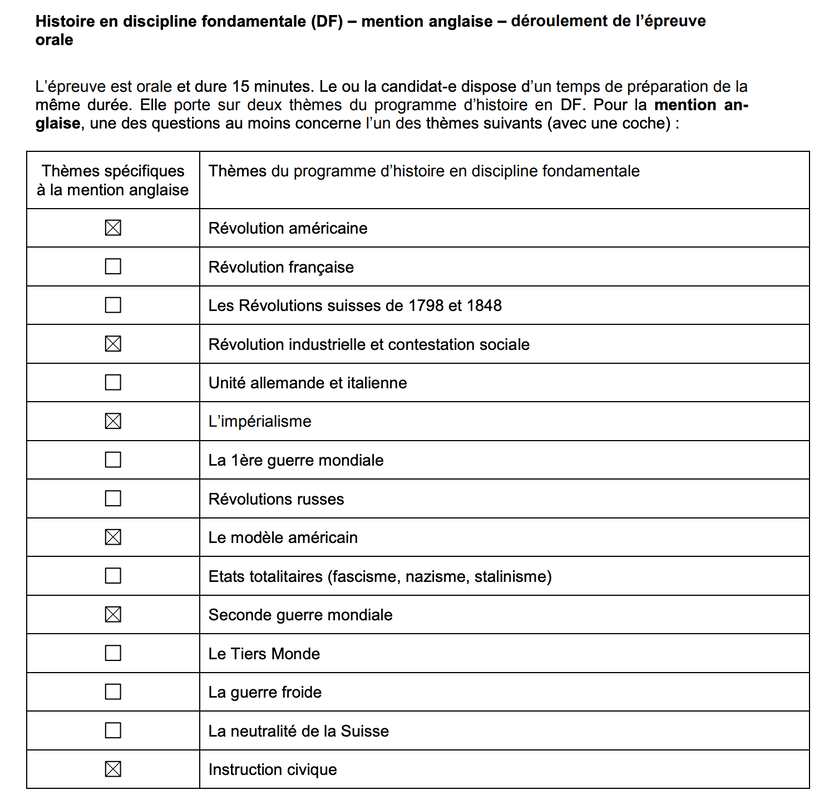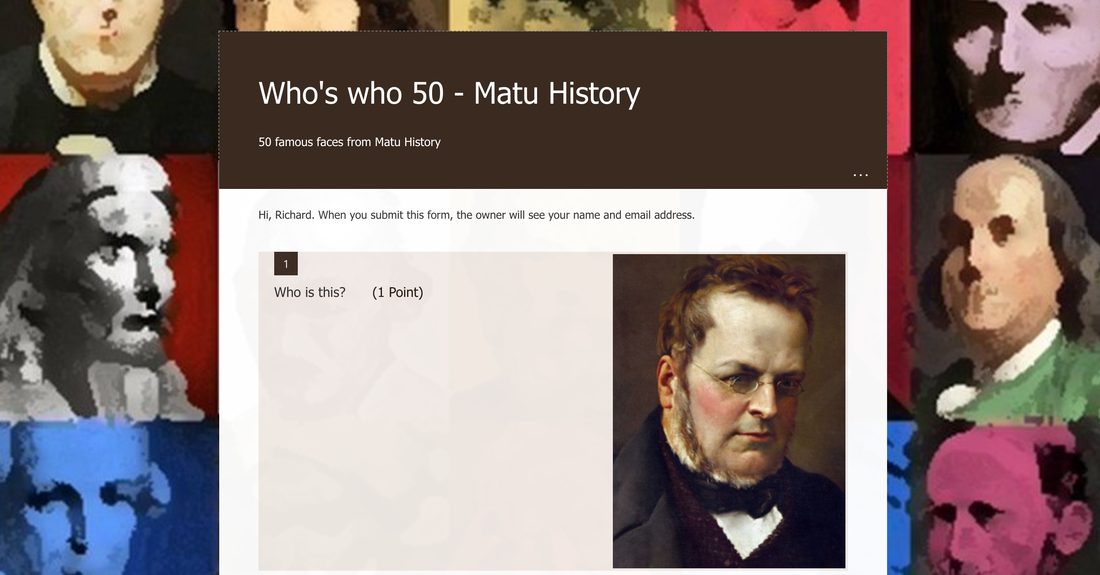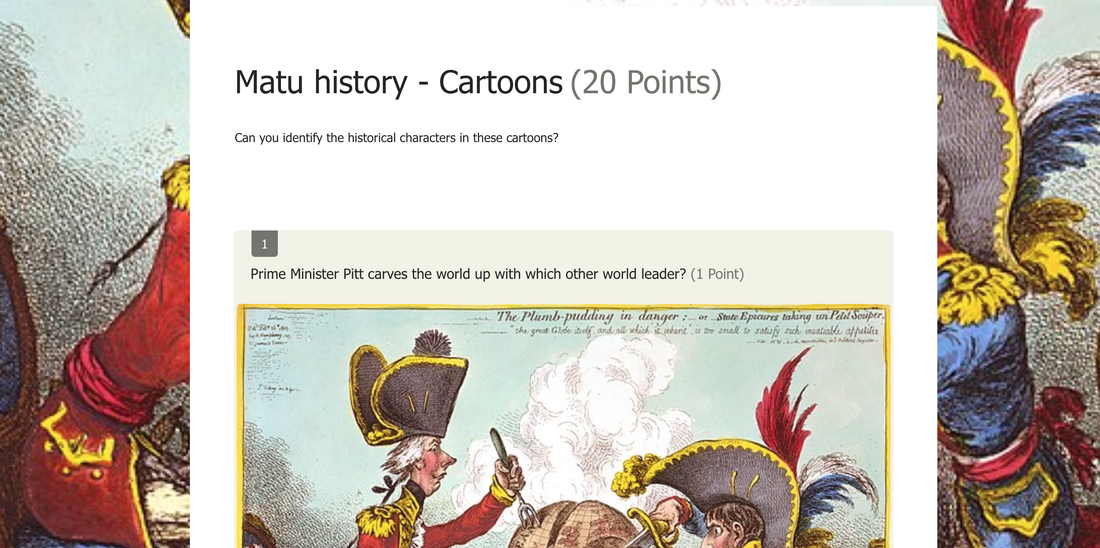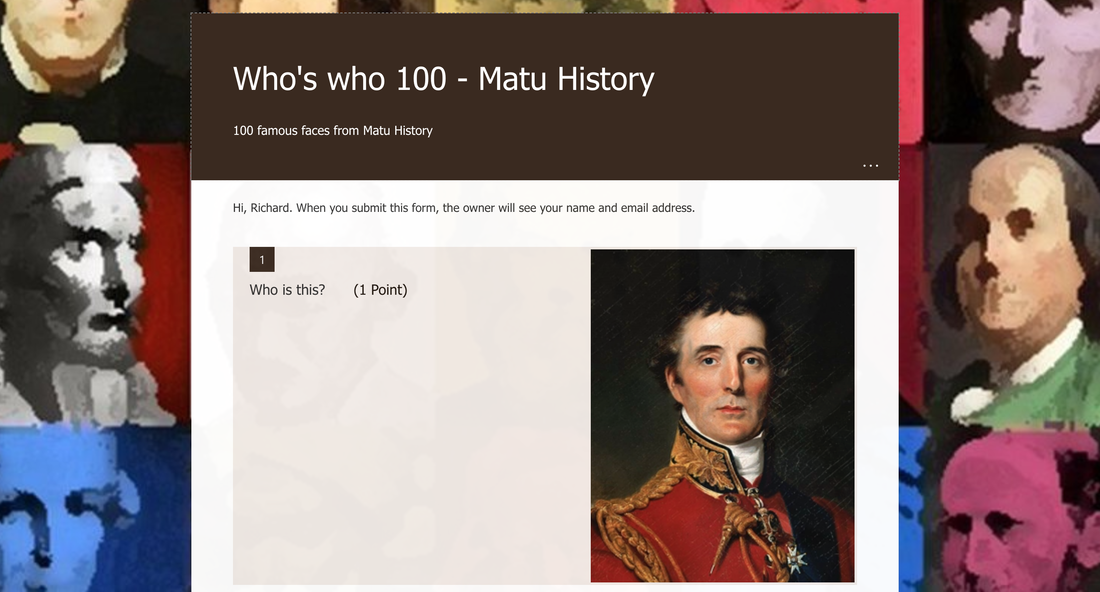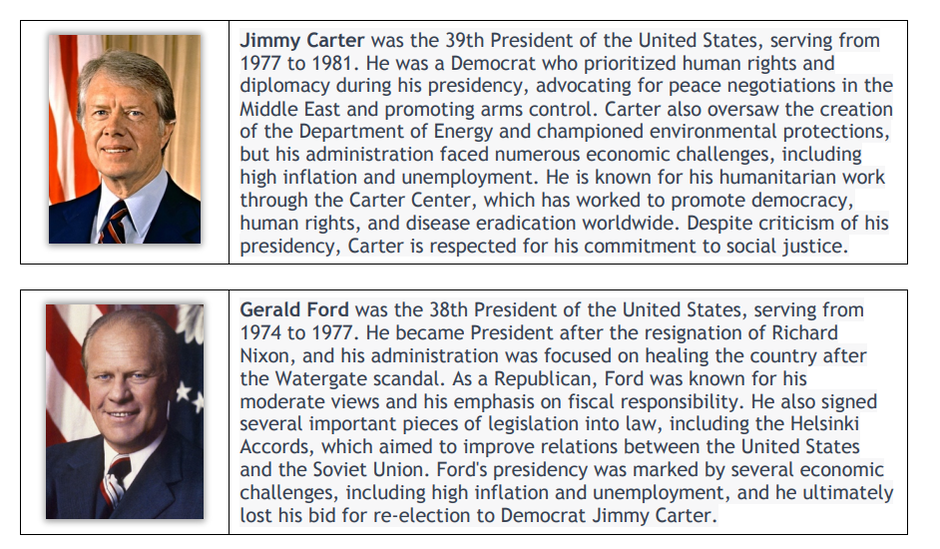|
Guidelines
Assessment in S3 will build on the assessment styles from previous years but will gradually focus exclusively on the skills required to complete the oral exam. To the left you can see the official guidelines produced for students sitting the oral exam in English. As you know, you will be given two themes to consider in the oral. Importantly, one of those themes will definitely be focused on one of the six themes that are marked by a cross. Clearly, these should be considered priority topics for revision. I have included the (vague) outlines from the official syllabus at the start of each of our 13 Matu units of study. You can download and view the official syllabus here. |
Matu Blanche week beginning 27th November 2023 - Revision and practice orals
The Matu Blanche will replicate the exam procedure of the final Matu history exam that you will face in the new year. As with the exams at the end of S2 you will once again be presented with two topics taken from the Matu syllabus. In addition to the content you had to revise last summer, on this occasion you will also need to revise the topics you studied in 11e (Matu 1 and Matu 2) and in S3 (Matu 10 and Matu 11).
The revision booklet opposite can be downloaded and contains summaries of all the units. Below you can book an oral practice. |
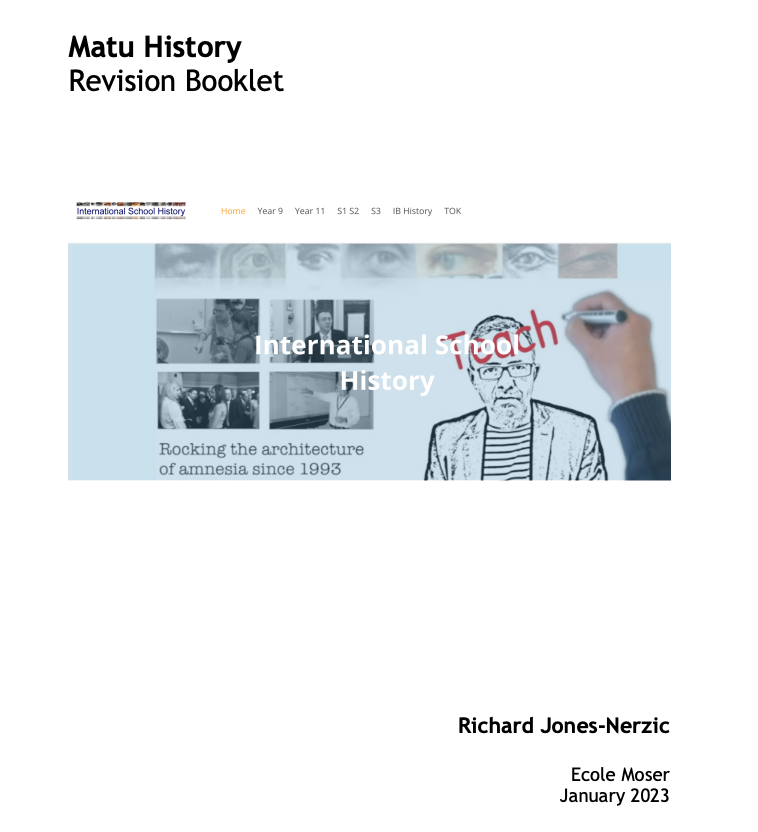
|
Revision and practice orals - December - January 2024.
You will be offered the opportunity to have at least two practice orals. The first will test Cold War and second (later) will test decolonisation. You can book the orals below. Once everyone has had an opportunity to book their orals you can book additional practice if you wish.
You will be offered the opportunity to have at least two practice orals. The first will test Cold War and second (later) will test decolonisation. You can book the orals below. Once everyone has had an opportunity to book their orals you can book additional practice if you wish.
Matu Revision
|
|
|
One of the difficulties students face in the Matu exams is in identifying the historical characters in the sources they have to analyse. Below are challenges on four levels. The first three are quizzes, the fourth are the cards for the 'Guess Who' game with currently 40 leaders to guess.
My very special (and last ever) M2 class in 2022 asked me if it might be possible to create a quiz that tested everything they had ever learnt in my lessons... 580 questions later

